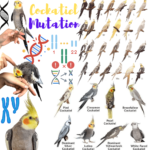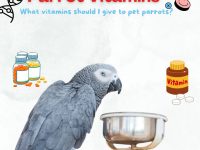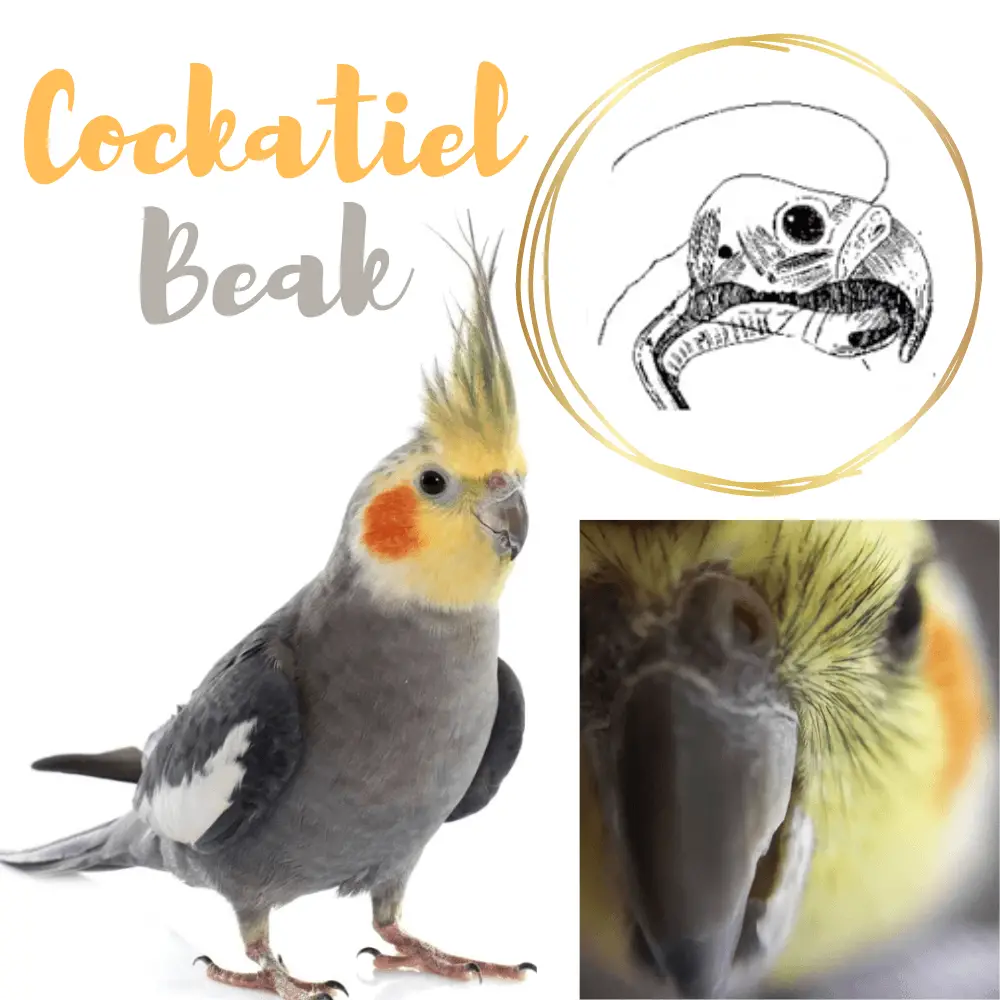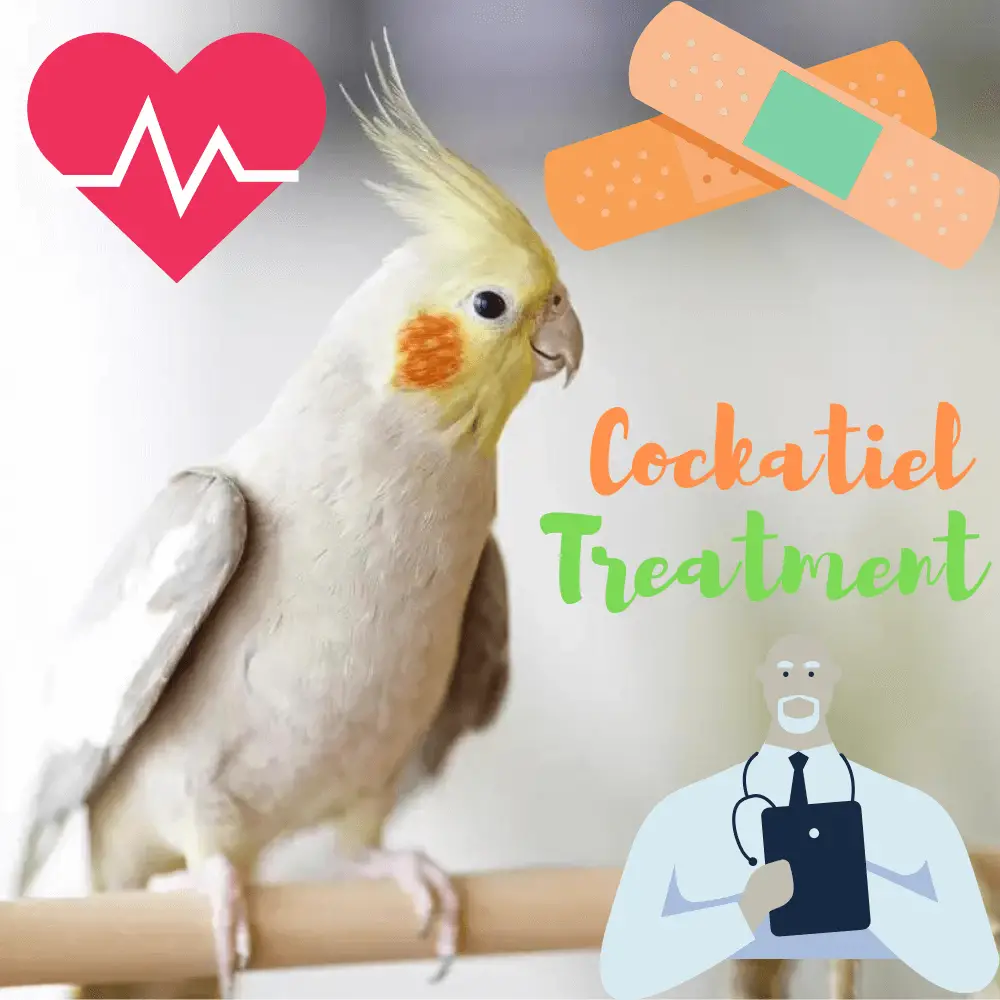
How to care for cockatiel health? Cockatiel Treatment and preventive care: if your parakeet scratches frantically, lose weight, or exhibits particularly agitated behavior, it is possible that it is a victim of a parasite. In this article, we will detail the most common parasites of the parakeet, ways to recognize them, and ways of treatment.
The most common parasites
Scabies in cockatiel
Scabies is a common mite in birds. It can spread over the entire body but is especially visible at the level of the head, legs, and beak of the animal.
If your bird has scabies, it will scratch frantically, abnormally. Treat it quickly with an antiparasitic.
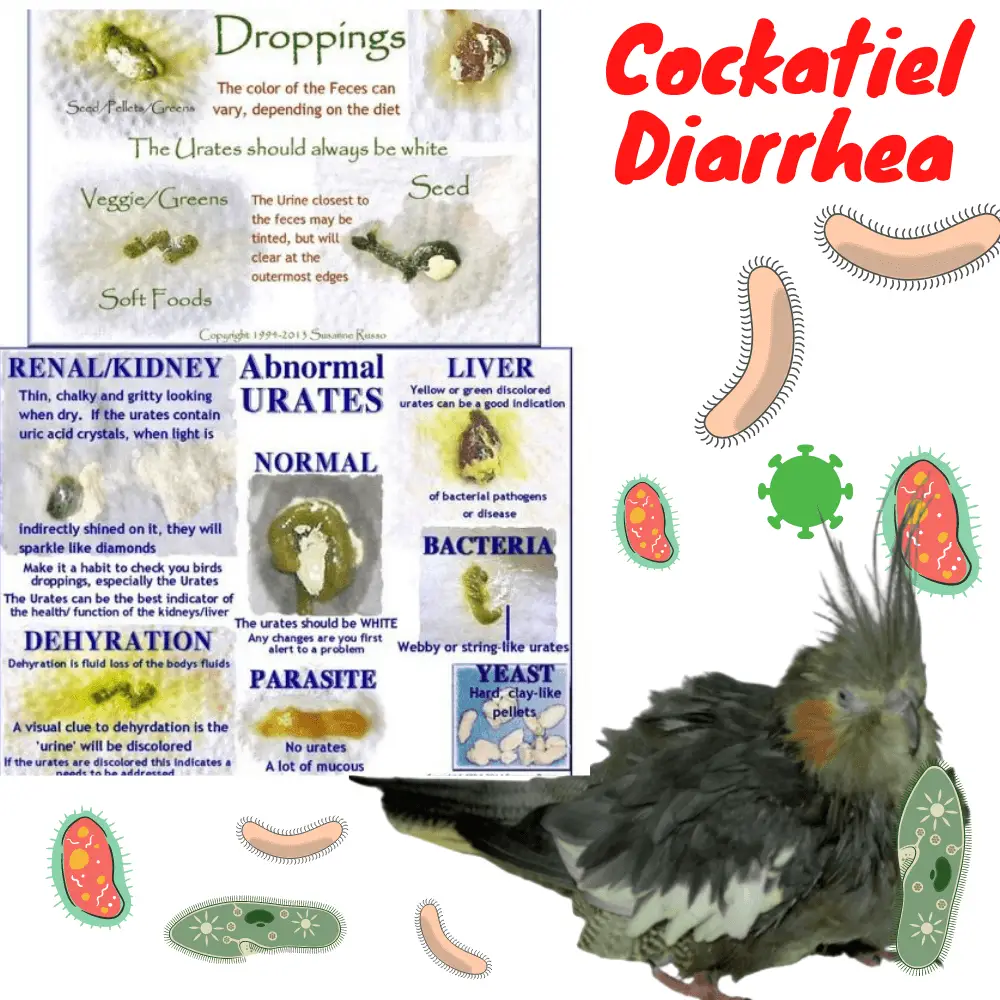
Red lice in cockatiel
If your bird has empty, featherless areas with pruritus, it may be suffering from other mites, such as the “red louse”.
The cockatiel is most often contaminated by pigeons or other wild birds, which is why the red louse is mainly present in birds living outdoors.
Since red lice are active at night, it can be difficult to spot them. To check for their presence, stick double-sided tape in the corners of your aviary: the red lice will be glued.
To get rid of it, use an antiparasitic and wash the bottom cage filling with hot water. You may need to repeat the operation repeatedly.
The common louse of the cockatiel
The common lice of the cockatiel black and visible to the naked eye, are mainly present on the head, rump, or under the wings of your bird. Your parakeet then exhibits restless behavior, crusts, and brittle feathers. Old, sick, or weakened parakeets are most often affected.
Other parasites
Calopsittus can also suffer from ringworm, although it is rare. It is usually transmitted from bird to bird.
For parakeets living outdoors, Augustate larvae can lead to trombiculosis. These parasites, orange and visible to the naked eye, are nevertheless easily identifiable, and particularly present in summer.
The most vulnerable parakeets (young, old, or sick) can also be attacked by a parasite causing coccidiosis: the parakeet withers loses weight and is affected by diarrhea.
These symptoms are found in the case of candidiasis, or thrush. In this case, a fungus proliferates in the beak and jabot of the parakeet. This fungus is mainly caused by stress, malnutrition, or poor hygiene.
Treatment and prevention
To treat your parakeet against the most common pests, you can use a commercially present antiparasitic. But of course, there is nothing like prevention. To prevent your parakeet from catching parasites, take care of the impeccable hygiene of its cage and give it varied and balanced food to keep it healthy. You can also give it a vitamin supplement as a preventive treatment.
If the treatment does not work, the condition of your bird deteriorates or you have doubts about the presence of a parasite or its nature, consult your veterinarian.
Lifestyle as prevention for a healthy cockatiel
The cockatiel is a rather solid bird for which simple hygiene and safety rules will allow you to keep it for many years. Following 4 simple rules on a daily basis will save you a lot of inconvenience and veterinary visits!
- Rule n°01: In the first place, it is important to know that a healthy and adapted diet is the basis of good health for your animals: indeed food is involved in the poor health of a cockatiel in about 70% of cases! Thus, the abundant presence of black sunflower in the diet is often responsible for fatty liver disease!
- Rule n°02: In addition, it is important that your pets live in a healthy and hygienic environment. Change the water bowl every day and be sure to place it so that it is not soiled by animal droppings (the same is true for the food bowl). Do not let your cockatiels consume food or water contaminated by their droppings! Clean the aviary, toys, and perches, and change the substrate once a week.
- Rule n°03: Watch your birds’ droppings! It sounds odd to say, but abnormal bowel movements are often the first clue to a problem for your pet. Learn to distinguish normal droppings from those that are not: the sooner you notice the difference and the sooner you and your veterinarian can make the necessary arrangements.
- Rule n°04: Finally, in case of the arrival of a new cockatiel at your home, do not skip the quarantine period! Many diseases are contagious and a number are serious, even fatal and incurable. Whether you adopt your animals in a bird exchange, at a breeder, at an individual, or in a pet store, isolating new animals will allow you to preserve old ones. Place your new companions in a cage and in a room well insulated from others. Wash your hands before and after each manipulation and ideally change clothes and take a shower after handling the new ones.
The dewormer of the cockatiel
It is important to regularly deworm your cockatiels, outside of molting or breeding periods. To do this, a product based on Levamisole is usually used, at the rate of 12ml per liter of water. Ideally, deworming in spring and autumn is recommended for birds living in outdoor aviaries (once a year in the case of indoor animals).
Know the metabolic peculiarities of cockatiel
The cockatiel is not a mammal, it is therefore dangerous to rely on our knowledge of the latter when we are faced with a health problem. Indeed, the basal metabolism of cockatiels is very high: this means that they eliminate drugs quickly and therefore the minimum inhibitory concentrations (i.e. the minimum dose of antibiotics needed to eliminate a bacterium) are difficult to achieve.
In addition, this animal is sensitive to the toxicity of certain molecules that can be found in certain drugs. Calopsittus then develops more important side effects than mammals. This is the case with local anesthetics, steroidal anti-inflammatory drugs, or even medroxyprogesterone for example.
Finally, administering an oily topical is not recommended to maintain the quality of the plumage as well as its impermeability.
Simple and fast analysis of cockatiel feathers
There is a simple test to do when you have doubts about the state of health of a cockatiel. It requires only one of its feathers. Join the tip of the feather with its base: the spine (the central stem) should remain flexible and not break. If this is not the case, your parakeet may have problems with deficiencies or even metabolic pathology. Do the feathers of your bird break abnormally easily? Consult a veterinarian.
Treating Sick cockatiel
SOURCE:Blue Clay


